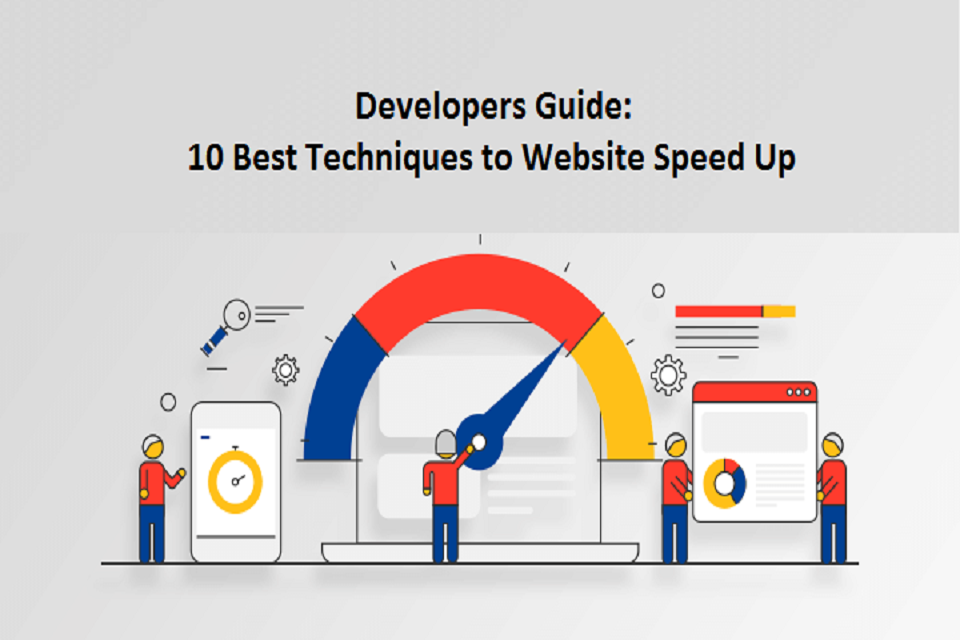Creating a website in 2020 is extremely easy. You don’t have to be a tech geek or programmer. Follow the right technologies to get a perfect speed for your website. If you want to speed up the website, choose the right platforms, tools, tactics, and a guide from us. Listed below are some of the ways you might use to fix the issue with your website.
1. Choose a Good Web Hosting
Nowadays, companies are bundling different services together and allowing users to create, host and manage websites from a single service provider. We usually call these companies website builders or online store builders. Hosting a website on these bundled platforms is usually expensive and less flexible. But you can easily create a website or online store. Nowadays, various online assignment service providers are using the websites that work brilliant and the speed is perfect
2. Optimization
If you are also using WordPress and your website loading time is increasing over time or the admin panel is getting too slow to open, then it is important to optimize WordPress. Let us tell you about some of the great plugins available for WordPress that can be used to make WordPress websites better and faster.
3. Cloud hosting for larger websites
Shared hosting, dedicated server hosting, and cloud / VPS hosting. If you are a small website, it is cheaper to go for shared hosting plans. Larger sites are recommended to use cloud or dedicated hosting. Some of the key features you should consider before choosing a web host are pricing, server speed and uptime rate.
4. Get Mobile version optimization
Mobile users are on networks that are slow to use PCs and laptops. Therefore, it is very important that your site loads faster in less ideal conditions. Mobile versions of sites should be designed to require less bandwidth.
5. Do not bother Expenses
Make sure you choose a hosting plan that suits your needs. Budget-friendly, low-cost options may seem appealing, but they can come with limitations that slow down your site. Also, make sure your host is a stable provider of high-speed services. Not all companies are created equal, and some companies provide fast servers to their customers, even when everything is equal. It can be difficult to tell which hosts are there, but customer reviews can be helpful during the purchase process.
6. Tracking the website’s speed regularly
Have you ever dropped the slow-loading webpage and tapped the back button to find information elsewhere? Of course you have. Everyone has one or another. However, 25% of us haven’t entered a page in four seconds (and expectations are only increasing with time). In short, how fast your website load will affect the likelihood that visitors will find your site. Once they find your site, it affects the performance of your site whether they stay and view your content. Now let’s look at ways you can improve the performance of your website. So try tracking the website’s speed on a regular basis to keep the visitors and all other calculations.
7. Use Google web Page Speed Tool
All you have to do is paste in the URL of your website Page Speed Insurance and click “Analyze”. In seconds, you’ll get statistics on how long your site has been running, as well as tips on what you can do to improve its speed, such as reducing the size of your image file.
Remove unused CSS code, or minimize JavaScript. Google also offers open source page speed modules, which are available for users working with Apache or Nginx servers. Once these modules are installed, you rewrite and refine the resources you use for your website, including adding and subtracting CSS and JavaScript files, and loading selected files.
8. Cache your website
Caching is a great way to speed up your page load. There are two things to do when it comes to catching. First, obtain and use a CDN or content delivery network. CDN is a network of servers that store copies of your website. Then, when someone makes a request on your website, it is delivered to them by a server close to them. This reduces the travel distance of packets before they reach the user.
9. Use Suitable Plugins
It adds an expires header to the web page so that the browser can cache the website and open the web page quickly. It also has full support for cache plugins such as WP Super Cache and HyperCache to further improve the performance of the website. The purpose of this plugin is to ensure that the website loads as soon as possible.
10. Extract CSS codes
Remove unused CSS code, or minimize JavaScript. Google also offers open source page speed modules, which are available for users working with Apache or Nginx servers. Once these modules are installed, you rewrite and refine the resources you use for your website, including adding and subtracting CSS and JavaScript files, and loading selected files.
Conclusion:
The WordPress Articles plugin can be very helpful in this regard if you want your website content to open quickly. Whenever a visitor comes to your website, this plugin will immediately load some posts already, so if the user clicks on them, they will appear in the blink of an eye. As for the front page of the website, it pre-loads the last two posts.


